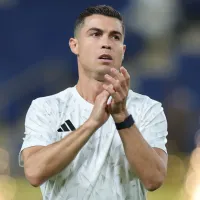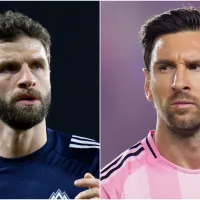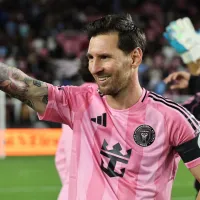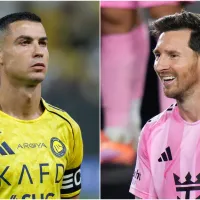I knew I was an addict when I was 14 years old.
It was 1998. I had just returned to the United States from a month-long invitational soccer camp in St. Jean de Luz, France, run by former French national team manager Jean-Michel Larqué. Two days earlier, Zinedine Zidane’s France had beaten Ronaldo’s Brazil to win the World Cup – on their home soil. In the aftermath following the final whistle, the entire country went crazy.
Businesses that should have been open were closed, throngs of people filled the streets bedecked with French flags, air horns and similar fanfare. Highways were backed up with traffic as people who were listening to the match on the radio literally left their cars to celebrate with their countrymen. Cafés, restaurants, bars – or any venue with a television – were showing the Final, and when the French won there was an audible roar that swept through every big city and small town. Crowds of people, young and old, spilled into the streets joining thousands of others. Strangers before, perhaps, but no longer. The scenes of pure, unbridled joy were in a word: breathtaking.
For a while, I thought I would never know that feeling. To be honest, at that age I had not yet developed a fervent support for any soccer team, national or club. Sure, I’d been to a few Metrostars matches (when they still played in Giants Stadium at the Meadowlands), but I simply had not invested myself emotionally in the success or failure of any club enough to be living and dying with every win or loss. Now, I wanted to and needed to so immediately upon arriving back in America, I set about doing exactly that.
Despite Major League Soccer garnering relatively favorable support in the first two years of its existence, many fans of the game (myself included) had turned their attention to the professional leagues in Europe. Renowned for their talented players, many of whom had just featured in the 1998 World Cup, some teams had been in existence for almost 100 years – maybe even longer. More impressive still was each country’s particular hierarchy of leagues. Over time, separate leagues had been developed to accommodate the amount of clubs and each club’s respective level of talent. Operating in a promotion or relegation system, teams could be elevated or demoted based on their overall performance from the season’s beginning until its end. The same system exists today and while this is a very cursory explanation of how European soccer leagues are structured, it was rather intriguing as a 14-year old who had just been introduced to the concept.
Now back to my addiction. It wasn’t exactly how you might imagine it. First of all, it was difficult to even be able to watch soccer matches on a regular basis. In fact, seeing 60 minutes of a match was a struggle. By scouring the TV Guide, I would either get lucky enough to catch 90 minutes of Mexican Primera with Spanish commentary (which I learned to absolutely love), or I was blessed with replays of the prior week’s English Premier League matches on MSG. Sometimes – and this was rare – I would be flipping through channels and RAI would be showing a worthwhile Serie A match.
Here’s the thing: I had never been exposed to any of these leagues or their teams, and I was a newbie. I had no soccer knowledge, and I freely admitted it. My father, a first-generation immigrant from Senegal who has been extremely passionate about the world’s game for as long as I can remember, encouraged me to support just one team. “Pick a team and support them 100%. Do your homework – research their history. Learn about their players. Remember, they don’t have to be the best right now, and maybe it’s better not to pick everyone else’s favorite.”
So that’s what I did. I began my support of Chelsea Football Club, despite the fact that the majority of EPL matches that were ever shown were ones in which Manchester United were featured. I was a huge fan of Gianfranco Zola, Gianluca Vialli, and Marcel Desailly, who had recently played a key part in France’s World Cup victorie had just joined the club.
When the 1998-99 season began, I was a 14 year-old about to take on the daunting halls and social awkwardness of high school. Very few of my friends were interested in soccer – let alone a particular team in a particular league in England. I was probably considered odd for not being excited by the upcoming American football season or for being unable to name major teams or players (I didn’t become interested in the NFL until 2007 and I am now a proud Jets fan). Instead, I was scouring public libraries for VHS tapes. Yes, VHS tapes – keep in mind it was 1998 and there were no YouTube, MatchHighlight, or 101GreatGoals websites. I was lucky enough to rent several Premier League full season highlight compilations from my municipal library, and they quickly became the only “homework” I was interested in doing. I spent hours – days, really – memorizing the names of players, coaches, clubs and even referees. I acquainted myself with the terminology: woodwork for post, kit for jersey, boots for cleats, manager for coach, etc.
Over the next few years I became an addict. No, I didn’t wake up in a cold sweat, shaking from withdrawal, shivering and sweating at the same time, all while plotting what lengths I’d be willing to go to in order to get my fix. I did, however, find ways to feed my addiction. I skipped classes, called out sick from work, shunned my girlfriend and purposefully failed to show up to various social events.
Basically I abandoned all other distractions because what else, if anything, is “being a fan”? I mean a real fan and not one who jumps on the bandwagon of the best team during their most successful moments, or one who refuses to take time out of their schedule to support their club. Fandom is supporting the team no matter what position they hold in the league. It’s supporting the team despite the fact that they are losing. It’s also an absolute investment in the belief that your individual support means something to the club; that it makes a difference.
These days, my addiction has resulted in a need to watch soccer – whenever I can get my eyes on it. In short, I’ve become a junkie of the beautiful game and my support, like my drug of choice, has expanded to include the New York Red Bulls and the United States Men’s National Team. The former play in my state of birth. The latter represent my country. Whenever they play, I live and die with these teams, their losses become my losses and equally their wins are my wins.
So why the confession? Why the brief history of my addiction to the beautiful game?
This is in invitation – a challenge even, to all who have yet to support a club team (and even those who already do). In just over two weeks, 20 clubs will begin their 10-month Barclays Premier League season. If you have not yet picked a team to support, do so. World Soccer Talk has made this quite easy, providing a beginners guide to the English Premier League (EPL), along with a TV/Internet schedule listing NBC’s quality coverage of every match – whether on television or via their streaming platform.
In short – pick a team. Follow their progress, study their roster, and research their history because there is something uniquely engaging about the sport. Especially one so loved worldwide, and few would deny its ability to unite (or divide). Allow this season to prove it to you. Sign up. Buy the ticket. Take the ride.
Become an addict – like me.













